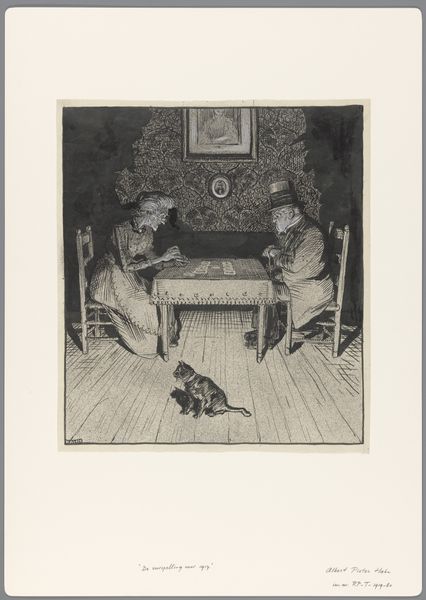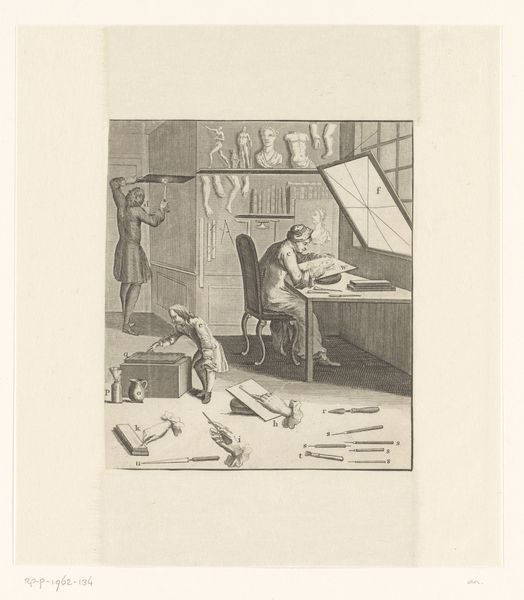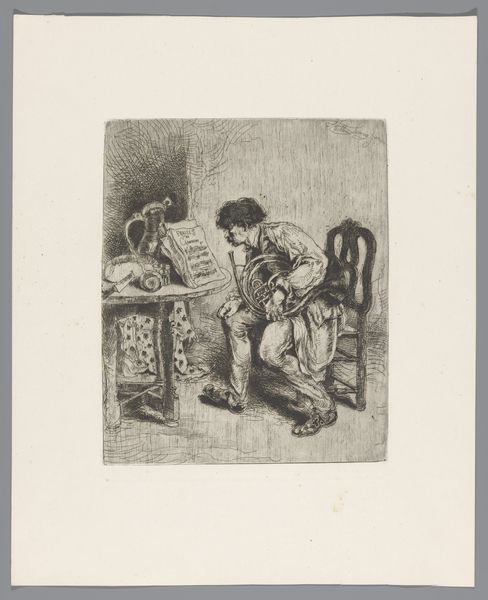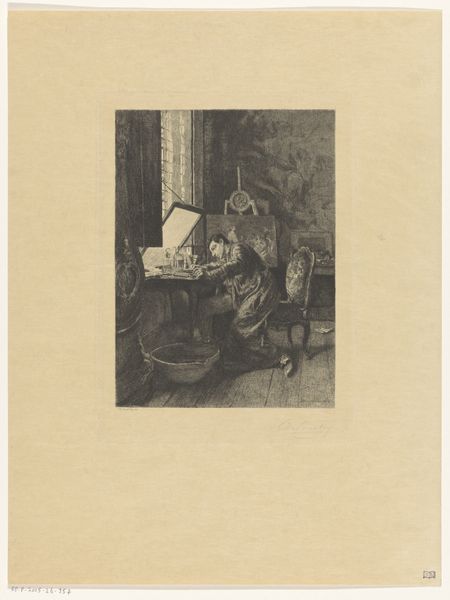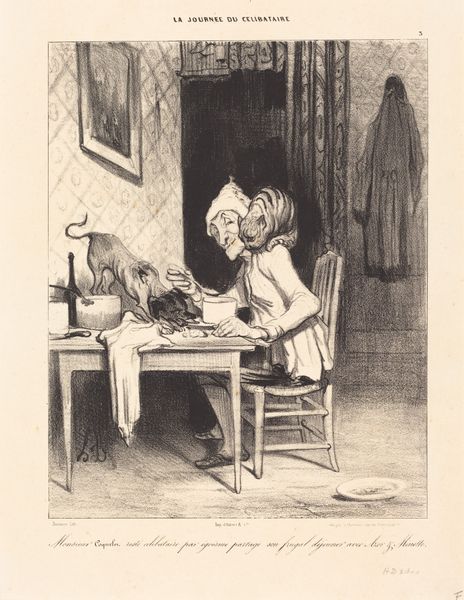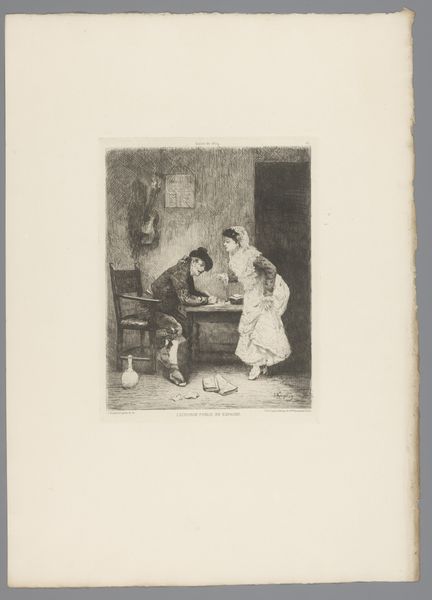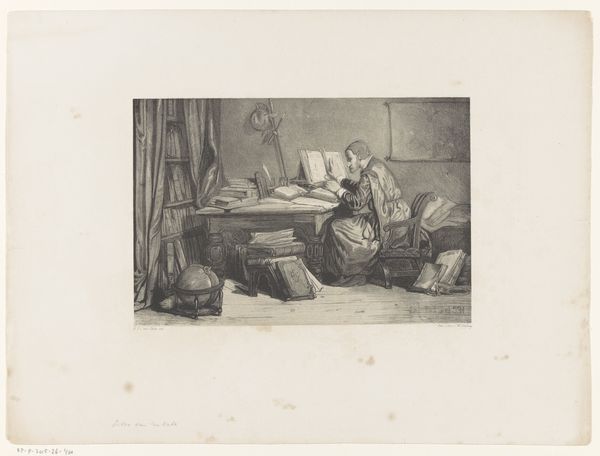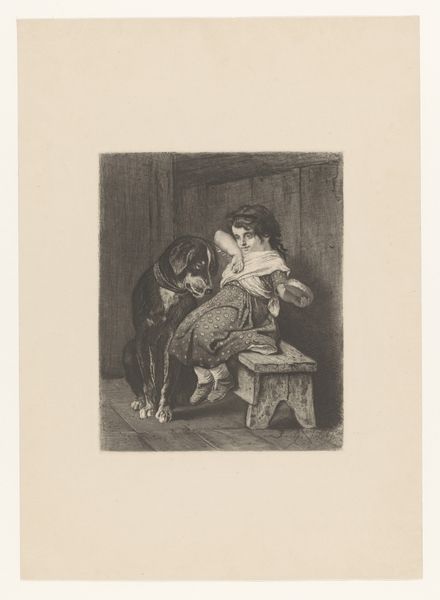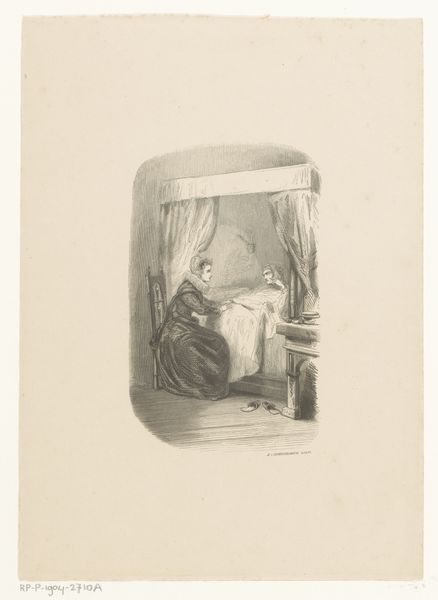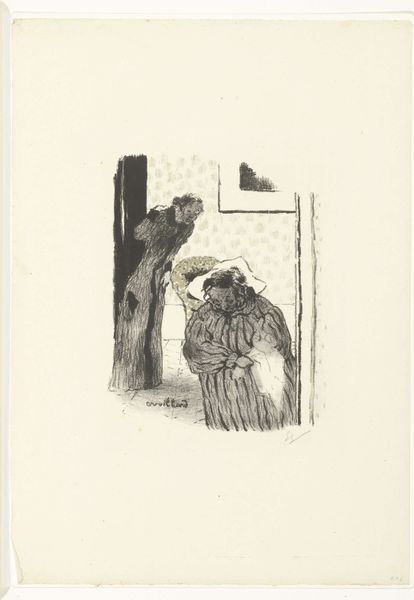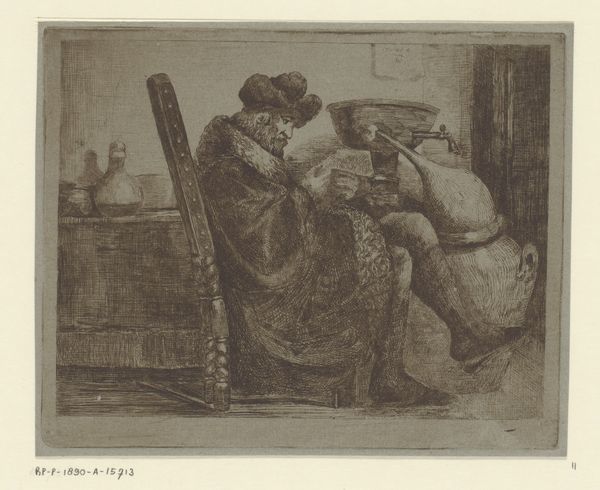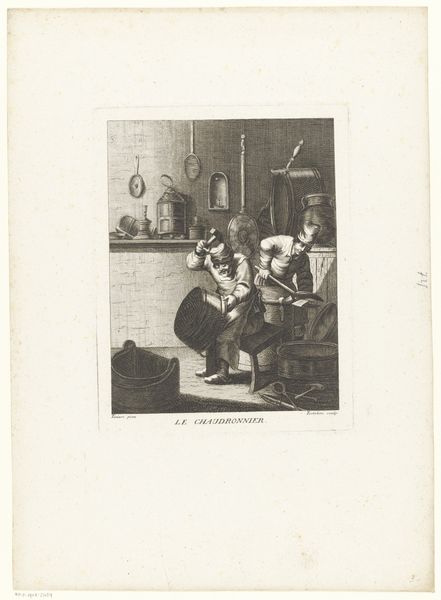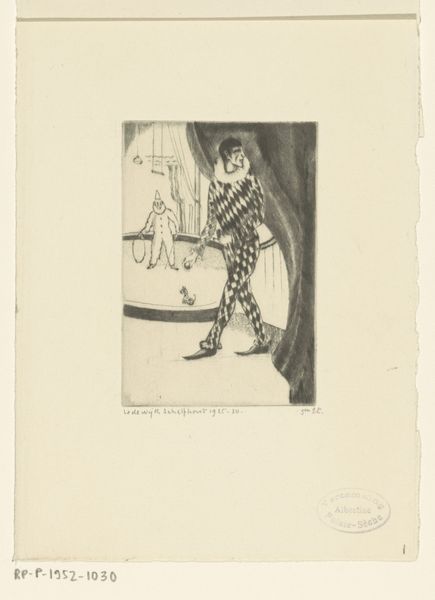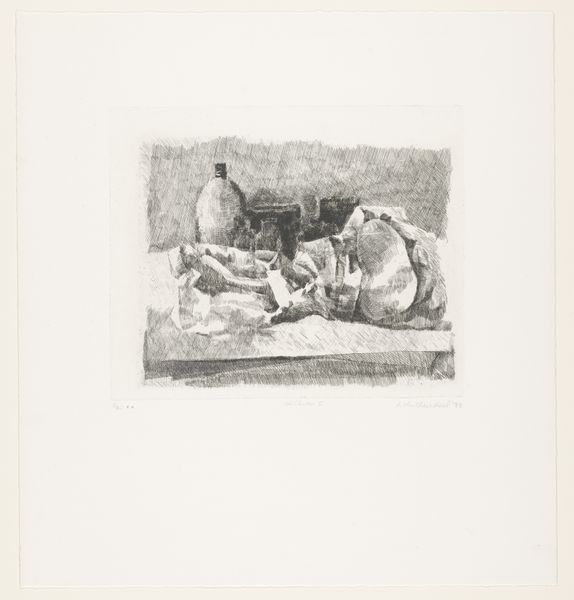
Ontwerp voor een politieke spotprent: De Gulzige knaagdieren. Aan de arbeiders-boterham 1887 - 1919
0:00
0:00
print, etching, paper, ink, engraving
#
art-nouveau
#
ink paper printed
# print
#
etching
#
caricature
#
old engraving style
#
paper
#
ink
#
watercolour illustration
#
genre-painting
#
engraving
#
monochrome
Dimensions: height 302 mm, width 267 mm
Copyright: Rijks Museum: Open Domain
Editor: So, this is "Ontwerp voor een politieke spotprent: De Gulzige knaagdieren. Aan de arbeiders-boterham" by Albert Hahn, dating between 1887 and 1919. It’s an etching printed on paper, with some watercolor touches. I find the scene so strange, almost like a bizarre political fairytale. What do you make of it? Curator: This work by Hahn immediately draws my attention to the intersection of class and power, portrayed through potent animal allegory. Consider the symbolism here. These are not just mice; they're stand-ins for those who exploit the working class. What does the 'arbeiders-boterham,' the worker's bread, signify in this context? Editor: Scarcity, maybe? Like the wealthy are literally eating the poor’s meager living? Curator: Precisely. And think about the historical context. Hahn created these political cartoons during a time of immense social upheaval and growing socialist movements. He worked for "De Notenkraker", a socialist magazine. What statement is Hahn making about wealth distribution and the systems that perpetuate inequality? Note the mouse in the top hat! Editor: It’s pretty direct! I see, it’s a critique of capitalism… sort of a rodent representation of exploitation. The art-nouveau style is interesting in this context though. It gives this serious political message a slightly fanciful feel. Curator: And how might this combination of style and subject engage viewers differently than, say, a purely realist depiction? Doesn’t the fable-like quality provide a layer of critique, making it digestible, yet still pointed? Editor: That's true. The unexpected juxtaposition makes it more memorable and impactful. Thanks for highlighting the historical context; it completely shifted my understanding. Curator: Absolutely. Thinking about the broader social landscape reframes our entire understanding. Now I see the artwork and its significance with more clarity!
Comments
No comments
Be the first to comment and join the conversation on the ultimate creative platform.
